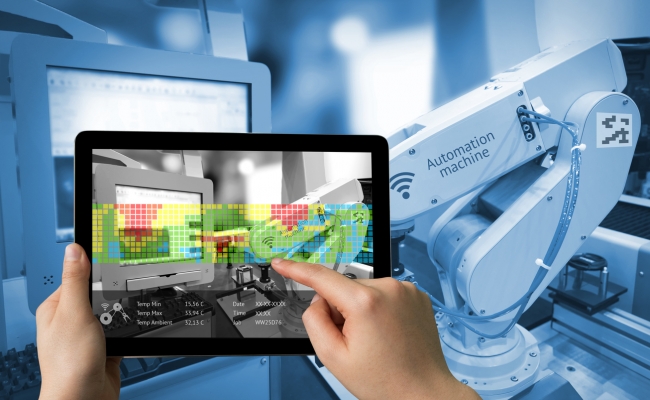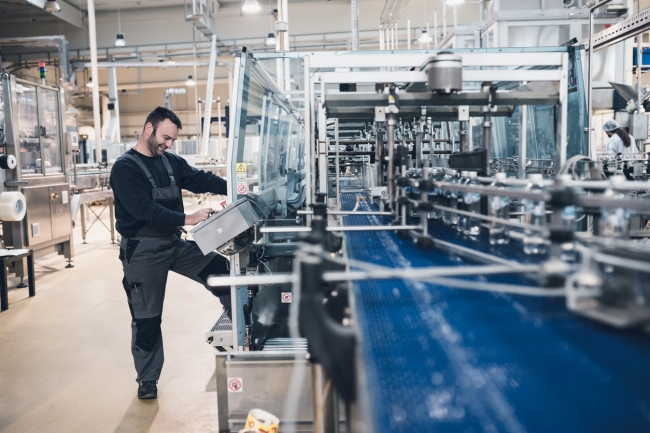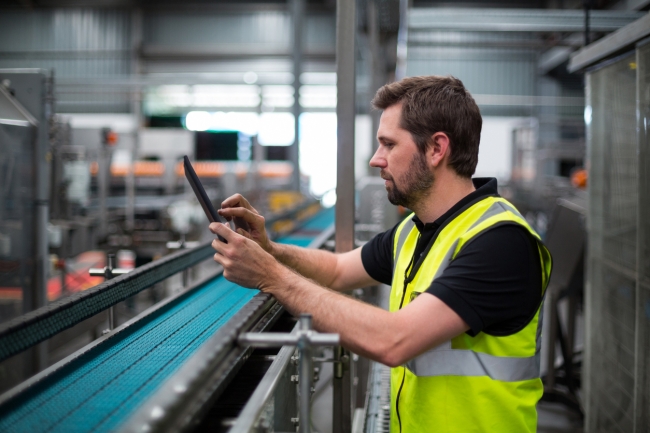5 minute read • published in partnership with Epicor
Opinion: Getting fit for growth by saying goodbye to paper
The manufacturing industry has been debating the merits of paperless for the last two decades, but few have actually adopted entirely paper-free operations. In today’s manufacturing landscape, where digital transformation is widely considered as essential to business growth and survival, and where Industry 4.0 and smart factories are proliferating, there’s no longer a place for paper. Mark Hughes from Epicor explains how the sector can get fit for growth by saying goodbye to paper.
Now, it’s time to stop talking about it—and start adapting. Changes in legislation, advances in technology, and the rapidly evolving marketplace, will amplify the need for adoption in 2019. With regulatory and compliance authorities increasingly demanding the automated generation of digital records, the move to go paperless is fast becoming crucial. For UK manufacturers, minimising unnecessary checks and preventing disruption to supply chains post-Brexit will be heavily dependent on their ability to participate in paperless customs procedures.
Investing in the right software will help keep businesses agile, and able to respond quickly to any market changes, but these systems are driven by data. Data should, therefore, be stored electronically so that it can be used and accessed, across an organisation, by anyone, at any time.
The multiple benefits of paperless manufacturing are widely recognised—increased accuracy, seamless electronic record-keeping, and easily-shared data, to name a few. By not digitising and automating their operations, businesses run the risk of being unable to navigate today’s turbulent economic and political landscape—let alone capitalise on growth opportunities.

Investing in the right software will help keep businesses agile and data should be stored electronically so that it can be used and accessed, across an organisation, by anyone, at any time / Picture: Getty/iStock
The business case for paperless
For the manufacturing community, compliance is king. For instance, breaching GDPR guidelines could cost firms an eye-watering 4% of annual turnover. Accuracy and transparency is becoming imperative—and paper leads to multitudes of inaccuracies, which also costs the industry millions of pounds each year.
For food and beverage manufacturing particularly, accuracy has never been more crucial. The frequency of high-profile, large-scale food recalls has become too commonplace for comfort. You only have to look at the Food Standards Agency website to see that the volume of food and allergen-related recalls shows no sign of reducing—in 2018, 189 recalls were issued. Businesses that have been forced to recall large amounts of product over safety, hygiene, or labelling concerns can incur catastrophic damage, both in monetary and reputational terms.
This reinforces the need for optimal levels of traceability, quality, and regulatory compliance to minimise damaging product recalls, as well as risks to consumers. For UK manufacturers, navigating the regulatory and recall processes is only set to become harder as Brexit approaches. Paperless manufacturing will be crucial in the wake of the UK leaving the EU—as British businesses could face an increase in administration, which will be an extra hindrance for firms that haven’t fully automated their business processes.
Breaking down the barriers
The benefits might seem obvious, yet decades on from initial predictions, manufacturers still have yet to completely remove paper from the factory floor. Despite various technological advancements in the industry, manufacturers are struggling to break down the barriers standing in their way to an entirely paperless environment.
The transition from pen and paper to the Industry 4.0 technologies of today can prove daunting to manufacturers. However, digitalisation doesn’t necessarily mean complicated, and the move to paperless can often begin with a single process—rather than a complete system overhaul.

Digitalisation doesn’t necessarily mean complicated, and the move to paperless can often begin with a single process / Picture: Getty/iStock
Another barrier standing in the way of digital adoption is concern that the current workforce lacks the skills needed to adapt to this digital transition—and the technologies that power it. With new technologies invariably requiring extensive training, the worry may be that a firm’s existing workforce is not equipped for these changes.
However, manufacturers should be aware that the new workforce demographic is keen to work with digital innovations. According to research, 41% of young people overall want the opportunity to work with the latest innovations, including voice-activated technologies that connect them with resources on-demand or automate tasks. Indeed, 33% of millennials say they want to be at the cutting edge of new developments and to interact with new technologies in ways that boost their productivity in the workplace.
The way we interact with machines, robots, and the world around us continues to evolve, speeding up everyday actions and making these easier. Switching to a paperless environment, bolstered by software and tools, will help deliver a more seamless user experience for employees on the factory floor and in other areas of a manufacturing business.
Goodbye paper, hello technology
Staying still is not an option. Businesses that refuse to say goodbye to paper run the risk of being left behind in today’s increasingly digital landscape. Even long-established companies are overhauling their day-to-day business operations—WD-40, a globally renowned manufacturer of household products, has completely automated its order processing, shipping and invoicing. In doing so, the firm streamlined its business processes into one system, which has helped free up employee time and enabled better inter-office communications between the company’s multiple dispersed sites.
Southco, a manufacturer of engineered access hardware solutions that include entry door latches and locks, began its global digital transformation journey over 10 years ago with the implementation of a variety of automated processes across its factories—integrated and managed by an effective enterprise management solution. Moving away from paper and connecting software with processes enabled the firm to transform its facilities into smart factories that have reduced product defects, downtime and waste.

Businesses that refuse to say goodbye to paper run the risk of being left behind in today’s increasingly digital landscape / Picture: Getty/iStock
Another firm extolling paperless manufacturing is BV Dairy, a dairy producer that went paperless with Epicor DocStar—an enterprise content management (ECM) solution. DocStar began to yield benefits shortly after implementation, freeing up time in the accounts department and releasing staff to perform more complex tasks and help fuel corporate growth. The system also removed employees’ daily need to manually sort through over a hundred delivery notes, saving ten hours per week. Under the new system, delivery notes are now scanned in, cross-referenced, marked as received, and stored in both DocStar and Epicor ERP to permit cross-referencing and searching from each. The new system has increased the producer’s accuracy, efficiency, traceability, and flexibility—and helped streamline processes.
The multiple benefits of going paperless are clear—but manufacturing firms need the right IT infrastructure in place to ease the path to growth. Enterprise resource planning (ERP) solutions can help organisations manage and simplify their business processes by tying everything together under a single database and interface, while manufacturing execution software (MES) can help eliminate inefficiencies and support better business decisions with accurate, easy-to-access, real-time information.
Not only are these technologies key to supporting the move to a paperless environment – they also provide manufacturers with the visibility they need to manage new industry 4.0 innovations.
